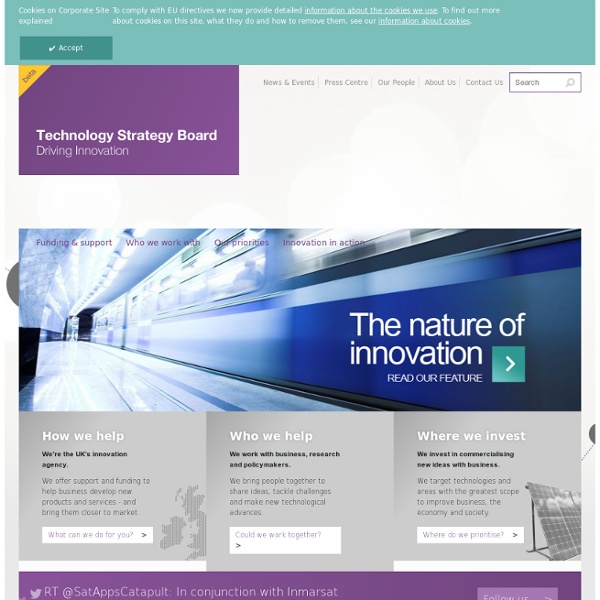



Rural Development Programme for England The Rural Development Programme for England provides money for projects to improve agriculture, the environment and rural life. Funding goes to schemes to: improve rural life and businesses promote environmentally friendly ways of managing land sustain existing and create new areas of woodlands Strategy and Evidence Plans « Evidence: science, statistics, economics, research Research and analysis provides evidence for decision-making, ensuring Defra’s polices are based on a sound, comprehensive understanding of current evidence. It helps us find new policy solutions and identify and tackle future issues. We use the term ‘evidence’ to encompass material from a variety of disciplines – science research, statistics, economics, social research or operational research, and geographical information. We use a variety of quality assurance processes. Science research To inform sound policy-making, Defra needs access to the right information and to be confident of the quality of that information.
RAC - Royal Agricultural College UK Business Grants and Funding Opportunities - Business Grants DirectUK Business Grants and Funding Opportunities – Business Grants Direct Our service is free to apply.Your information is 100% secure, and we never pass on or sell your information.We will apply for all grants relevant to your information that you provide us with.Grants change on a monthly basis, please find below funding program’s we currently have access to. Grant N11H3 Products/Equipment Grant Program (D011) Non -Repayable GrantSuccessful applicants awarded between £3,500 - £15,500Decision within 21 daysUp to 40 days to process the grantWe help 1 in 2 people that apply (approx)
Reports and publications This project explored the increasing pressures on the global food system between now and 2050. It highlights the decisions that policy makers need to take today, and in the years ahead, to ensure that a global population rising to 9 billion or more can be fed in a fair and sustainable way. The project focused on 5 challenges for the future: balancing future demand and supply sustainably - to ensure that food supplies are affordable ensuring that there is stability in food prices - and protecting the most vulnerable from the volatility that does occur achieving global access to food and ending hunger - recognising that producing enough food in the world so that everyone can potentially be fed is not the same thing as ensuring food security for all managing the contribution of the food system to the mitigation of climate change maintaining biodiversity and ecosystems while feeding the world Over 100 peer-reviewed evidence papers were commissioned to inform the analysis.
www.ukspa.org.uk - Science Parks 3M Buckley Andrew Porter Ltd BioPark Why the Foundation Funds Research in Crop Biotechnology We invest in the following strategic areas that we believe will help address the challenges and local realities faced by farming families in the developing world. Research and Development Researchers are seeking ways to combat crop disease such as those infecting the cassava plants on this Tanzania farm. We support research to develop more productive and nutritious varieties of the staple crops grown and consumed by farming families.
Crops & Agronomy Research Home > Research > Crops & Agronomy Research Highlights A major contributor to R&D in UK agricultureWorks within the whole industry to develop key research areasReports a wide range of ongoing independent field studiesTakes a leading role in knowledge transferProvides bespoke research services for groups and businesses Crops and Agronomy Research aims to champion the role of independent agronomic research in UK agriculture. It brings together NIAB TAG’s network of field-based variety evaluation and crop husbandry research and its expertise in interpretation and dissemination, with the specialist field and laboratory capabilities of NIAB's plant pathology team and the Silsoe Spray Applications Unit. Crops and Agronomy Research is funded from charitable, levy or government and industry sources, often in collaboration with partner organisations and institutions, to undertake the strategic agronomic research projects that develop as part of its research strategy.
ERDF - EU Regional Policy The ERDF aims to strengthen economic and social cohesion in the European Union by correcting imbalances between its regions. The ERDF focuses its investments on several key priority areas. This is known as ‘thematic concentration’: Spotlight on Food Security: The Key to Economic, Environmental and Global Stability Tjada McKenna, Deputy Coordinator for Development for Feed the Future | USAID | USAID IMPACTblog You may have noticed a lot of increased talk about “food security” lately, particularly in the international development realm. There’s good reason for that.
Private sector organisations commit to support the G8 food security agenda SABMiller plc announces the launch of the first ever commercial-scale cassava-based beer , 'Impala'. This image shows fields of cassava in Mozambique, with the root harvested from the ground. Photograph: OneRedEye During the 2012 G8 Summit SABMiller, along with other private sector organisations, is making a firm commitment in support of the G8's food security agenda. G8 urged to tackle malnutrition, the hidden killer in Mozambique For their meal tonight, Olinda Novela and her children will dine on tree root soup. This is what they ate for breakfast, and what they will likely eat tomorrow. The soup, made from mashed wood shavings boiled in salty water, has zero nutritional value.